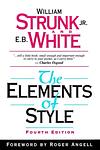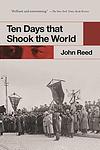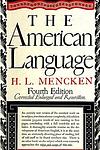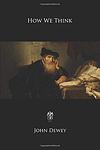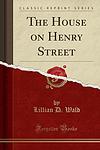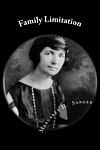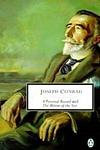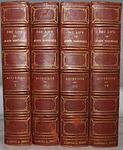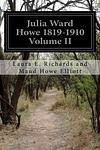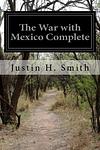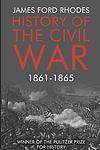The Greatest American "Nonfiction" Books From 1910 to 1919
Click to learn how this list is calculated.
This list represents a comprehensive and trusted collection of the greatest books. Developed through a specialized algorithm, it brings together 291 'best of' book lists to form a definitive guide to the world's most acclaimed books. For those interested in how these books are chosen, additional details can be found on the rankings page.
Genres
Countries
Date Range
Reading Statistics
Click the button below to see how many of these books you've read!
Download
If you're interested in downloading this list as a CSV file for use in a spreadsheet application, you can easily do so by clicking the button below. Please note that to ensure a manageable file size and faster download, the CSV will include details for only the first 500 books.
Download-
1. The Elements of Style by E. B. White, William Strunk Jr.
This book is a definitive guide and classic manual on the principles of English language read by millions of readers. The 18 main topics are organized under headings such as Elementary Rules of Usage, Elementary Principles of Composition, A Few Matters of Form, Words and Expressions Commonly Misused, and An Approach to Style. The book's unique tone, wit and charm have conveyed the principles of English style to millions of readers, making it a beloved resource for those who want to write clear, correct and effective prose.
-
2. Ten Days That Shook the World by John Reed
This book provides a firsthand account of the Russian Revolution in 1917, specifically focusing on the ten days during which the Bolsheviks seized power. The author, an American journalist, presents a detailed chronicle of the events, people, and emotions during this tumultuous period. His narrative is filled with vivid descriptions and passionate portrayals of the revolutionaries, offering an intimate look into this significant historical event.
-
3. My First Summer in the Sierra by John Muir
This book is a personal narrative of the author's journey through the Sierra Nevada Mountains in California during the summer. The author, a naturalist, describes in detail the stunning landscapes, flora, and fauna he encounters during his exploration. His deep appreciation for nature and wilderness is evident in his vivid descriptions and philosophical reflections. The book serves as a call to preserve and respect the natural beauty of the environment.
-
4. Twenty Years at Hull-House by Jane Addams
"Twenty Years at Hull-House" is a memoir that recounts the author's experiences co-founding and running a settlement house in a poverty-stricken, immigrant neighborhood in Chicago. The book details the struggles and triumphs of the community as they navigate social, economic, and cultural challenges, while also offering insight into the author's own evolution as a social reformer. Throughout, the author emphasizes the importance of empathy, understanding, and community engagement in addressing social inequality.
-
5. The American Language by H. L. Mencken
This book is a comprehensive study of the English language as it is spoken in the United States. It explores the unique linguistic characteristics, pronunciation, vocabulary, and grammar that distinguish American English from British English. The author also delves into the influences of other languages on American English, the evolution of American slang, and the regional dialects across the United States, providing a detailed and insightful analysis of the American language.
-
6. How We Think by John Dewey
The book explores the process of thinking, emphasizing the importance of education in developing critical thinking skills. It delves into the relationship between thought and language, the role of experience in shaping thought, and the necessity of applying reflective thinking to education. The author argues for a more active, student-centered approach in schools, promoting inquiry and problem-solving to better prepare students for the demands of modern society. The work is both a philosophical treatise and a practical guide for educators seeking to implement more effective teaching methodologies.
-
7. The House on Henry Street by Lillian D. Wald
"The House on Henry Street" is a memoir by a prominent social worker and public health advocate, detailing her experiences and work in the Lower East Side of New York City in the early 20th century. The book chronicles her establishment of a settlement house in the area, which provided a range of services including healthcare, education, and employment assistance to the community. The narrative offers a poignant insight into the struggles and resilience of the immigrant population during this period, and the author's pioneering role in public health nursing and social reform.
-
8. A Critique of the Theory of Evolution by Thomas Hunt Morgan
The book is a scientific critique of the theory of evolution, presenting arguments and evidence against certain aspects of the theory. The author, a prominent biologist, explores the limitations and inconsistencies in the theory of evolution, challenging the widely accepted Darwinian principles. He presents alternative theories and hypotheses, backed by his own research and observations, to explain the process of species development and genetic inheritance, thereby attempting to provide a more comprehensive understanding of biological evolution.
-
9. Prejudices by H. L. Mencken
"Prejudices" is a collection of essays that offers a critical and humorous look at American culture and society in the early 20th century. The author provides biting commentary on a variety of topics, including literature, politics, and the arts, while also offering his own unconventional and often controversial viewpoints. The book is known for its satirical style and its critique of American life and values.
-
10. Family Limitation by Margaret Sanger
"Family Limitation" is a pioneering work that advocates for the importance of birth control and family planning. Written in the early 20th century, the book provides practical information and guidance on various contraceptive methods available at the time, aiming to empower women with the knowledge to make informed decisions about their reproductive health. The author, a prominent birth control activist, argues for the moral and social necessity of family limitation, emphasizing its role in alleviating poverty and improving the welfare of women and children. The book was considered highly controversial during its publication but played a significant role in the birth control movement and the eventual widespread acceptance of contraception.
-
11. Through the Brazilian Wilderness by Theodore Roosevelt
This book is a detailed account of the author's adventurous expedition through the Brazilian wilderness. The journey, fraught with dangers, hardships and thrilling encounters with wildlife, is chronicled in a vivid and engaging style. The author, along with his team, explores uncharted territories, navigates treacherous rivers, and interacts with indigenous tribes, all while documenting the rich biodiversity of the region. The narrative provides a fascinating insight into the challenges of exploration and the wonders of the natural world.
-
12. A Personal Record by Joseph Conrad
"A Personal Record" is an autobiographical work that offers a glimpse into the life and thoughts of its author, a renowned novelist. The book provides a detailed account of his experiences as a young man leaving his native Poland to embark on a career in seafaring, which later profoundly influenced his literary work. It explores his motivations, personal growth, and the development of his identity as a writer. Through a series of anecdotes and reflections, the narrative delves into the challenges of writing and the intricacies of his artistic vision, presenting a compelling portrait of an artist's journey and the personal history behind his creative output.
-
13. The Life of John Marshall by Albert J. Beveridge
"The Life of John Marshall" is an in-depth biography that explores the life and career of the influential American statesman and jurist. The book covers Marshall's early life, his service in the Revolutionary War, his time in Congress and as Secretary of State, and most importantly, his tenure as the fourth Chief Justice of the United States Supreme Court. The author delves into Marshall's significant contributions to American constitutional law, his role in shaping the Supreme Court's powers, and his impact on the development of the American legal system.
-
14. Benjamin Franklin, Self-Revealed by William Cabell Bruce
"Benjamin Franklin, Self-Revealed" is an in-depth biography that explores the life, accomplishments, and personal philosophies of one of America's founding fathers, Benjamin Franklin. The book delves into Franklin's humble beginnings, his rise to prominence, his scientific and political contributions, and his lasting impact on American culture and society. The author uses Franklin's own writings and correspondences to provide a comprehensive and intimate portrait of this influential figure, revealing his thoughts on a wide range of subjects, from politics and science to morality and human nature.
-
15. Julia Ward Howe by Laura E. Richards, Maud Howe Elliott
This biography provides an in-depth look into the life of Julia Ward Howe, a prominent abolitionist and social activist best known for writing "The Battle Hymn of the Republic." The book explores Howe's early life, her marriage, and her growing involvement in social reform movements, including women's suffrage. It also details her literary contributions and her enduring legacy in American history.
-
16. The War with Mexico by Justin H. Smith
"The War with Mexico" is a comprehensive historical analysis of the Mexican-American War from 1846-1848. The book delves into the political, social, and military aspects of the war, providing an in-depth account of the events leading up to the war, the battles fought, and the aftermath. The author critically examines the motivations and actions of both sides, offering a detailed and balanced perspective on this significant period in American history.
-
17. A History of the Civil War by James Ford Rhodes
This book provides an in-depth analysis of the American Civil War, delving into the political, social, and economic factors that led to the conflict. The author explores key events, battles, and figures, offering a comprehensive understanding of the war's causes and consequences. The narrative also examines the role of slavery, the experiences of soldiers, and the strategies of both the Union and Confederate forces, providing a balanced and detailed account of this significant period in American history.
Reading Statistics
Click the button below to see how many of these books you've read!
Download
If you're interested in downloading this list as a CSV file for use in a spreadsheet application, you can easily do so by clicking the button below. Please note that to ensure a manageable file size and faster download, the CSV will include details for only the first 500 books.
Download